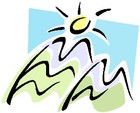Visions West Outreach School...where learning continues.
Visions West offers programming for students in grades 10 - 12. We are open to students Monday 11:30 - 3:00 and Tuesday through Friday from 8:30 - 3:00.
* We have had grade 9 students placed by WRSD although this is rare.
- Visions West offers complete high school programs. There is a wide variety of core and complementary courses available in a variety of formats. Students can complete all graduation requirements through our school.
- Visions West offers part time programs for students who are shared with another school or students who are in the workforce. This flexibility allows students to fulfill all their graduation requirements in the time available to them.
- At Visions West learning can continue one course at a time. This allows students to upgrade or complete prerequisites for graduation or post secondary and trades. These programs are designed to meet individual student needs.
Mission
- To provide a flexible and positive learning environment that accommodates all types of learners in an effort to assist students meet their diverse goals.
Vision
- Providing hope to students while helping them achieve their diverse goals.
Values
- To meet with each student individually to work through an appropriate plan
- Each student is worthy of time and attention in whatever format they need
- To meet the needs of the whole child: social, emotional, mental health and academic
Inquiry Question, Strategies & Measures
How does effective feedback during the assessment process drive student learning?
Our inquiry question grew from our conversations about how we, as educators, improve our practice to more effectively impact student learning. We discussed several components of the learning cycle, surveyed our students and completed research. Part of our research included participation in an online PD session entitled 12 Quick Fixes: Teaching and Assessment in These Times. Further reading of renowned assessment guru, Anne Davies’ in book Making Classroom Assessment Work, 4th Edition, revealed, “[t]he more specific, descriptive feedback students receive while they are learning, the more learning is possible”. Thus, our inquiry question focuses on assessment. Since assessment in and of itself is a large category we felt we needed to further refine it.
Our students, via our “Student Feedback re: Assessment” survey let us know the following:
A mark on the page “is just a number the higher the better [sic]”. Many student responses informed us that they prefer feedback with specific examples to guide their practice. While most preferred written feedback, some of our students, not surprisingly, preferred verbal feedback. What became clear is that our students feel they do best with specific feedback including examples.
Our inquiry question links clearly to WRSD’s Powerful Learning Environment Framework Balanced Assessment category.
Strategies:
Return student assignments in core courses within two school days.
Ensure that feedback on those assignments is a two-pronged approach:
1) what the student has done well
2) what the student needs to do in order to improve
Survey the students in January and again in May to see what they are noticing about their learning and improvement.
Nottingham Trent University’s Centre for Academic Development and Quality’s paper “Feedback turnaround time” (March 2013) complements Dr. Davies’ assertion that “timeliness together with detail and quality of feedback all contribute towards the effectiveness of feedback”. To that end, as a staff, we have agreed to a two school day return on core course assignments. It is understood that feedback pertaining to what the student has done well and what the student needs to do to improve to the next level forms part of that assessment loop.
Measures:
We believe that we should see increased student achievement as a result of timely, informative feedback.
We hope to see, once Diploma Exams are back up and running, classroom awarded marks and diploma exam marks within a 5-7% spread. In circumstances where the spread is greater, we will delve into the exam questions to see what we are missing and where we need to improve in order to better assist our students.
We will assess progress on answering your question and the effectiveness of our strategies, both during the school year and at the end of the school year by incorporating:
- A mix of both provincial and local measures including diploma exam results
- Measures of both quantity and quality taken randomly throughout the year
- We will look at successful course completion, examine diploma exam results, monitor success on unit, midterm and final exams. During our regular CRM meetings, we will monitor student progress as part of our process.
- We will conduct student surveys twice a year
- Implementation: Details of how you will put your strategies into action. Clearly identify:
- Allocation of resources that will be required to implement your strategies - Professional learning days and individual professional development
- Professional learning plan
- This is a three year plan that will be monitored quarterly over the next three years.
We have spent time during staff meetings and professional development days discussing assessment including the components of effective assessment, turn around time, the difference between formative and summative assessments, expectations for core and non-core subjects and more. We surveyed students about their preferences for assessment. It was not surprising to learn that most students prefer their feedback provided with specific examples to improve their learning.
